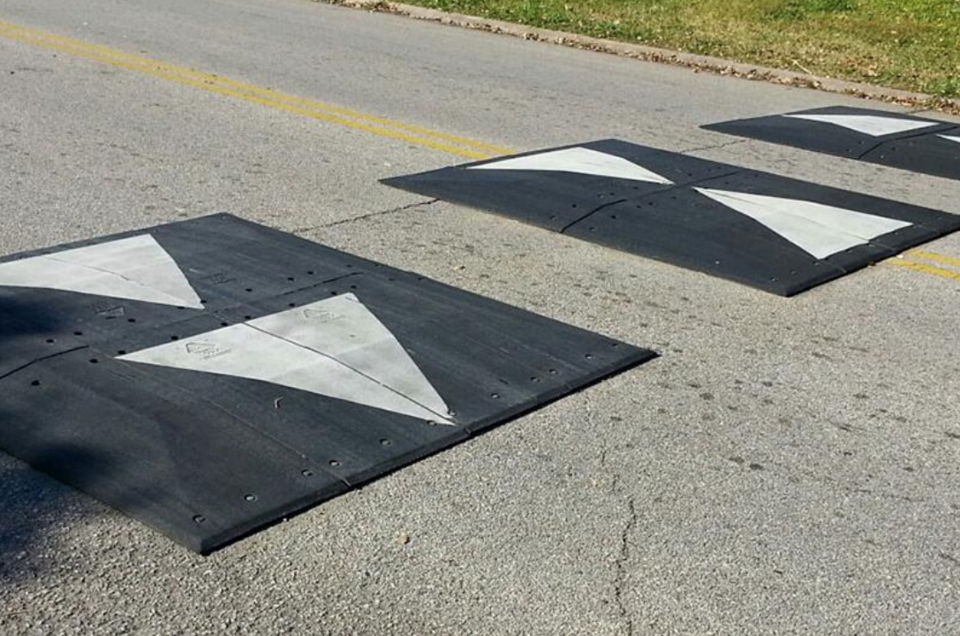The city and region are bringing out the heavy artillery in their annual war on speeders.
Starting next month, the city will try out rubber speed cushions for the first time on Ellis Road and Fisher Mills Road.
The small speed humps are positioned to fill the width of the road and are designed to slow vehicles while having a minimal impact on emergency vehicles.
In addition to that new seasonal traffic calming measure, drivers can expect to see the return of Tommy and Friends signs and radar message boards in select areas.
The big guns will come out gradually as new 40 km/hr speed limit signs get installed on all of the city's residential streets and police begin selective traffic enforcement in several trouble spots.
City school zone speeds will also drop to 30 km/hr throughout the year, 24/7.
A report from staff headed to council next week says reduced speed limit neighbourhoods are intended to encourage more conscious driving, reduce the severity of collisions and create a more welcoming environment for pedestrians and active modes of transportation.
Drivers with a lead foot might want to save up for what the region has in store.
Four new automated speed camera sites are coming soon to Myers Road, between Holy Spirit Catholic Elementary School and Moffat Creek Public Elementary School, Holiday Inn Drive, at Jacob Hespeler Public Highschool, Saginaw Parkway, at Clemens Mills Public School, and Avenue Road, at St. Peters Catholic Elementary School.
The new camera sites join two already in operation in Cambridge; one in the school zone on Guelph Avenue, and one near Elgin Street Public School. When the cameras are on, they operate throughout the year at all hours of the day.
The region plans to have camera sites installed at every school zone in the city by 2028.
The measures come as the city and region recognizes that speeding on residential streets is the most common concern staff and council receive.
Residents helped identify 28 locations where speeding is a problem last year alone.
As those concerns come in, the city says it assigns a staff member to investigate and that requires a substantial effort to collect data, analyze, and suggest solutions.
"Depending on the available information and the unique complexities or challenges of the location being reviewed, this effort may take anywhere from one week to several months to complete," reads the staff report.
As is often the case, the data shows that speeding is not evident, based on the 85th percentile of vehicles travelling at or below the posted speed limit, an industry standard and best practice.
"This information can be challenging for a resident to accept since their perception is that speeding is occurring by most drivers."
Requests for traffic signals, all-way stops, or reduced speed limits in isolated areas aren't always the best solution, according to staff, because they can create additional safety concerns such as increased response times for emergency services and worsening of local driving behaviours.
The estimated cost to implement measures in the city's 2024 Speed Management Program Action Plan is approximately $50,000 to be funded from the approved 2024 Transportation Operating Budget.

.jpg;w=120;h=80;mode=crop)



.png;w=120;h=80;mode=crop)


